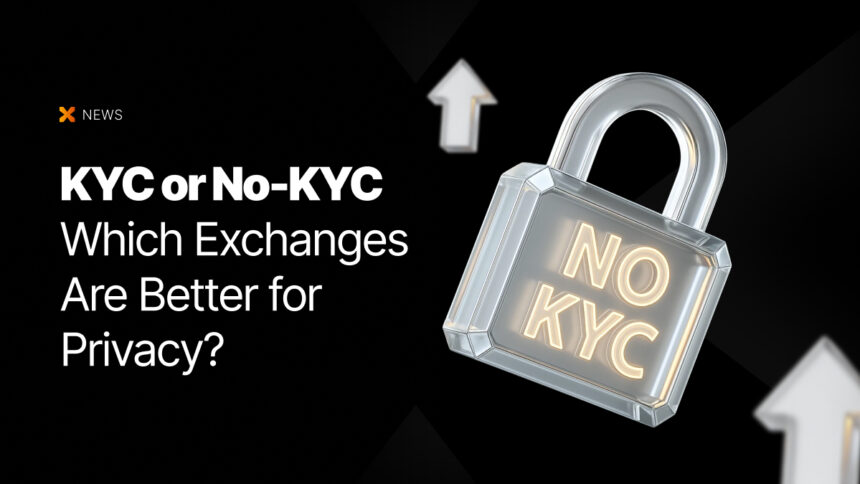While researching about crypto, you can come across a wide variety of terms which you don’t know the meaning of. These can include examples like KYC or No-KYC. In the crypto space, you can hear these especially when people talk about trading anonymously or keeping their digital assets private. But what do these terms really mean? And which type of exchange is better for privacy, KYC or No-KYC? Let’s break it down.
What Does KYC Mean?
KYC stands for “Know Your Customer”. It’s a process that requires you to verify your identity before you can use a crypto exchange. Most big-name platforms, like Coinbase or Binance, ask you to upload an ID, a photo and sometimes even a video just to trade or withdraw funds.
This is all done to meet government regulations and to prevent illegal activities like money laundering or fraud. But here’s the thing: once you hand over your personal info, it’s stored somewhere. And that means it can be hacked, leaked or even handed over to authorities if requested. So if privacy is your top concern, KYC exchanges might raise a few red flags.
What Are No-KYC Exchanges?
No-KYC exchanges skip the identity check. You don’t need to show your face, scan your passport or prove where you live. Most of these platforms only ask for an email address, or nothing at all. This makes them super appealing for users who care about staying anonymous, whether it’s for personal safety, avoiding surveillance or just wanting more control over their data.
Examples of No-KYC platforms include decentralized exchanges (DEXs) like Uniswap or Bisq, and some smaller centralized platforms that don’t enforce verification unless you’re moving very large amounts.
Why Privacy Matters
Privacy in crypto isn’t just for people doing shady things. There are legit reasons why someone might want to stay anonymous. Some of these may be:
- They live in a country where crypto is banned or restricted.
- They want to avoid being tracked by advertisers or governments.
- They simply don’t trust third parties with sensitive personal info.
With KYC exchanges, all your transactions can potentially be tied to your real identity. That’s a deal-breaker for people who got into crypto for its promise of financial freedom and privacy.
KYC or No-KYC Exchanges: What are Some of the Pros and Cons?
When deciding whether to choose KYC or No-KYC exchanges, knowing about some pros and cons can be useful. Let’s look at some basic trade-offs between the two:
Pros of KYC Exchanges
- Usually more trusted and regulated.
- Often have better customer support.
- Some offer insurance or protection if something goes wrong.
- Easier fiat onramps (buying crypto with regular money).
Cons of KYC Exchanges
- Loss of privacy due to identity checks.
- Slower sign-up process.
- Personal data can be exposed in hacks or leaks.
- Some countries may ban or freeze accounts.
Pros of No-KYC Exchanges
- High level of privacy and anonymity.
- Quick access to trading, which means no waiting for ID checks.
- Often lower fees due to fewer compliance costs.
- Good for privacy coins like Monero.
Cons of No-KYC Exchanges
- Higher risk of scams or rug pulls.
- Usually no legal protection or customer support.
- Limited options for buying crypto with cash or cards.
- Could get shut down by regulators without warning.
KYC or No-KYC, Which One’s Better for Privacy?
No surprise here: no-KYC exchanges win when it comes to privacy. If you want to trade without leaving a digital footprint tied to your name, they’re the clear choice. But keep in mind, privacy often comes at a price. You’re giving up the safety net that comes with regulated platforms. If your funds get stolen or something goes wrong, you’re mostly on your own. Check out ICOPAX for more crypto news.









